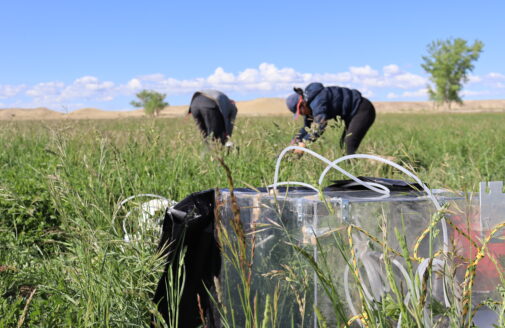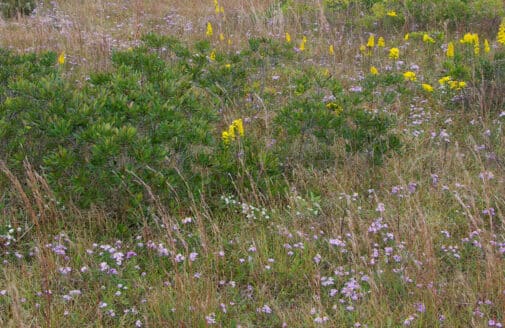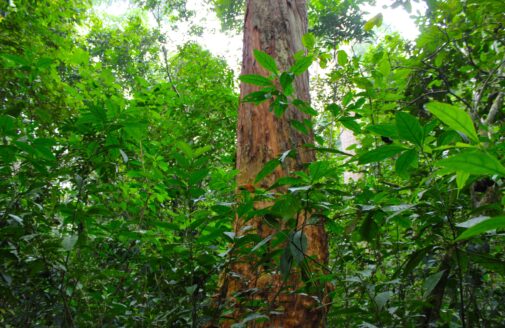New report maps best path forward for nature-based climate solutions
Successfully implementing nature-based climate solutions will require a big investment in new research
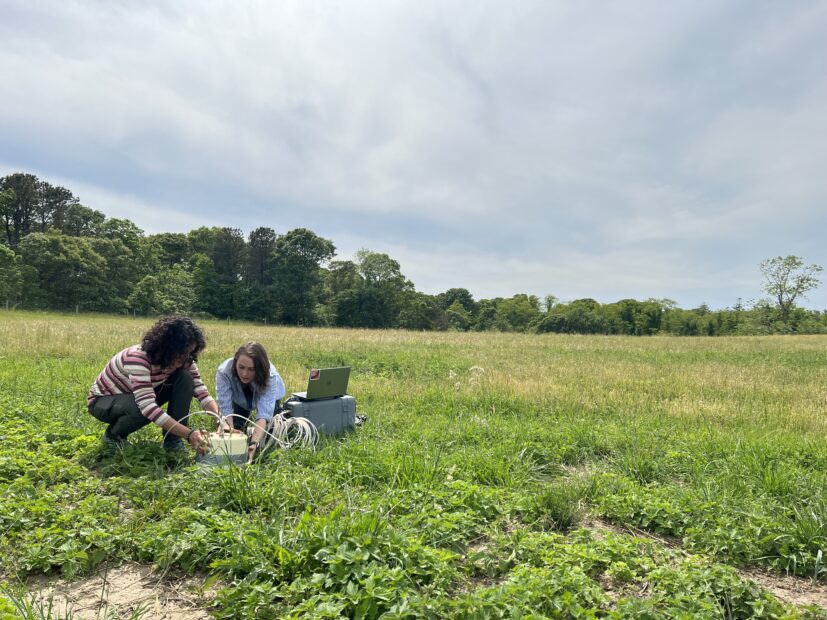
Woodwell researchers sample carbon fluxes from a farm in Massachusetts.
photo by Nichole Chapman
Nature-based climate solutions like reforestation, climate-smart agriculture, and wetland restoration harness natural processes to reduce greenhouse gas concentrations in the atmosphere and slow climate change. These approaches have substantial and growing support from bipartisan lawmakers, the private sector, and conservation-minded NGOs, but scientific tools to guide implementation and to accurately monitor outcomes are not adequately developed.
To confront that uncertainty and put nature-based climate solutions on a sound scientific footing, several dozen scientists and policy experts gathered in Washington D.C. in June of this year for a workshop sponsored by Indiana University, the U.S. Department of Energy, and the U.S. Carbon Cycle Science Program. The resulting white paper report reviews the current state of knowledge in this field, and describes the necessary research and technology investments to support effective mitigation policy.
According to the report’s lead author, Dr. Kim Novick from the Paul H. O’Neill School of Public and Environmental Affairs at Indiana University, “Nature-based climate solutions can play an important role in slowing the pace of climate change, but only if they are pursued alongside economy-wide decarbonization and guided by the best-available science.”
The white paper authors identify critical gaps in the science needed to support large-scale implementation of nature-based climate solutions and lay out a research agenda to fill these gaps. They also outline a set of principles that should guide future assessments of the effectiveness and viability of nature-based climate solutions. The result is a road map for producing information that will foster successful programs and policies—while avoiding energy wasted on those that do not.
Woodwell Senior Scientist, Dr. Jonathan Sanderman attended the gathering in June and contributed to the development of the paper.
“We’re at a unique moment in U.S. climate policy where the hard work of the research science community can be directly and immediately leveraged to help the U.S. fight climate change and become a world leader in implementing nature-based climate solutions.”
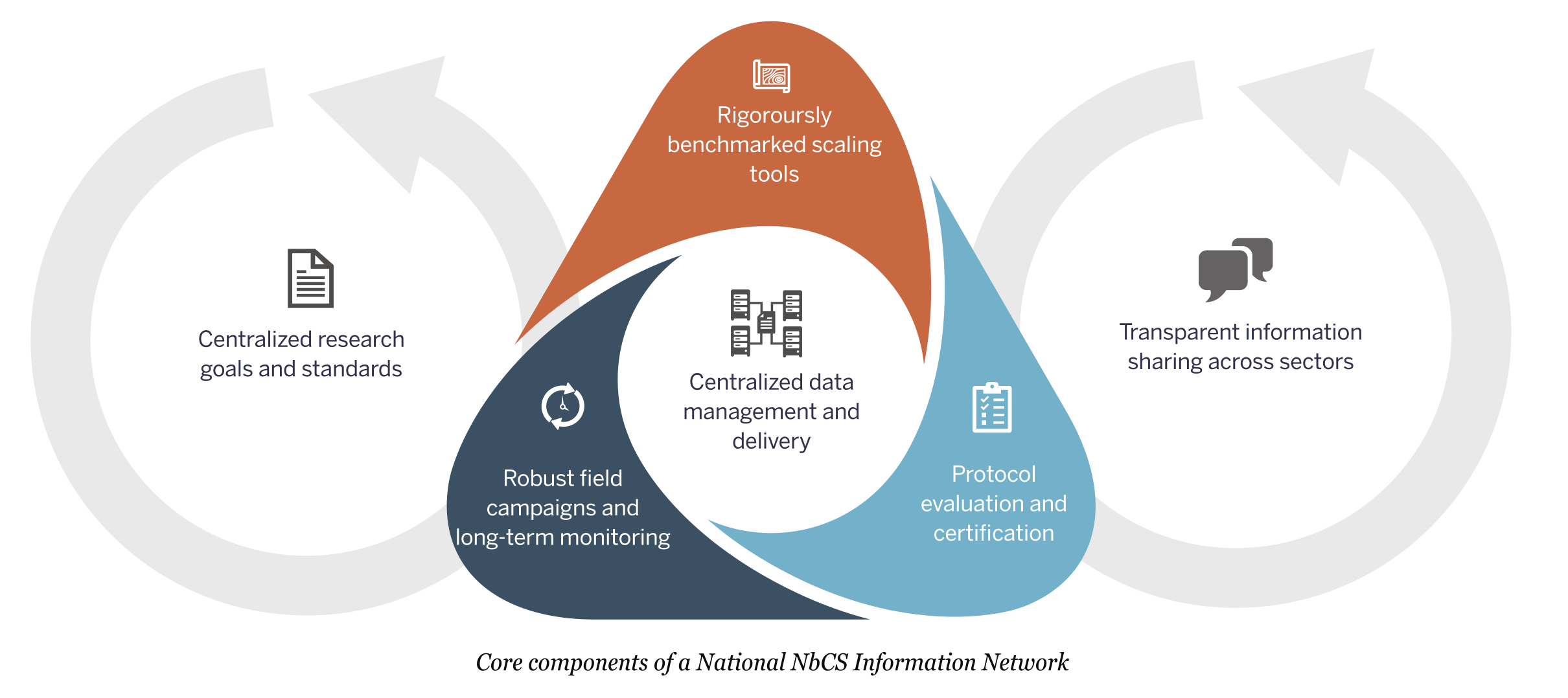
graphic by Mike Jackson
The report calls for a ~$1 billion (USD) coordinated investment in a national nature-based climate solution “Information Network” organized around coordinated ground-based experiments and monitoring that can inform rigorously benchmarked maps, model predictions, and protocol evaluations.
According to Dr. Benjamin Runkle, another report co-author and associate professor in the College of Engineering at the University of Arkansas: “Although the investment necessary to generate this information is not small, it is a fraction of the amount already allocated to implementation of nature-based solutions. Investing in sound science to predict, monitor, and verify the benefits of these strategies is fundamental to ensuring their success.”
In addition to their potential to stave off climate change, nature-based solutions also have a range of other benefits, including improving air and water quality, promoting biodiversity, and providing economic opportunities. Many can also help communities adapt to a changing climate and improve resilience of agricultural and food systems.
“There is broad-scale agreement that many nature-based climate solutions benefit people and the environment through co-benefits,” said Dr. Emily Oldfield, a report co-author and agricultural soil carbon scientist with the Environmental Defense Fund. “We should push to incentivize those practices using a wide range of policy tools, while acknowledging there is no one-size-fits-all approach to ecosystem-based climate solutions.”





